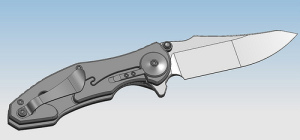A Chicago woman was charged with the October domestic violence related murder of her boyfriend. The woman, who stabbed her boyfriend in the chest shortly following what police called a domestic violence altercation, was charged with first-degree murder.
Defense of Domestic Violence Murder Charge
Any murder charge is a serious offense that requires an aggressive defense to avoid the possibility of a lifetime spent in prison. But murders that result from a domestic violence altercation usually come with a unique set of circumstances that mean there are a variety of defense strategies available.
Self Defense
The first line of defense in any violent crime stemming from a domestic violence altercation is self-defense. The defense would explore all of the circumstances leading up to the stabbing to see if the evidence supported the idea that the defendant felt her life was in danger when she stabbed the victim. Evidence that may support this defense would include:
- Cuts, scrapes, bruises, sprained or broken bones, defensive wounds, or other evidence that showed that the victim physically attacked the defendant prior to the stabbing;
- Testimony from neighbors who overheard the altercation and could testify that the defendant was being attacked;
- Evidence that the defendant had physically assaulted the defendant in the past, such as a prior criminal history of domestic violence or past protection orders;
- Whether landlines had been cut or the victim’s cell phone otherwise tampered with, to prevent her from calling for help, or;
- Evidence showing that the victim had his hands on the knife or another weapon at the time of the stabbing, such as his fingerprints on the knife or another object that could have been used to cause death or serious bodily injury.
If the evidence showed that the defendant feared for her life when she stabbed the victim, it could result in the prosecution dismissing the charges, or in an acquittal from the jury.
Imperfect Self-Defense
Imperfect self-defense, as I have discussed in the past, is when the victim believed she was acting in self-defense, but that belief was unreasonable. If the defendant can prove she acted in imperfect self-defense, then the charge would be dropped to second degree murder.
Much of the same evidence that would be used to prove self-defense would also be used to prove imperfect self-defense. In cases where the victim of domestic violence murdered her batterer, the victim was not in immediate danger of being seriously injured or killed. Instead, it is the past actions of the batterer, coupled with statements made shortly before the murder, that make her reasonably belief that her life is in danger and requires the use of deadly force to protect herself.
For example, the longer a couple is together, the less the need for actual physical violence to keep the victim “in line”. A certain look, or just a few harsh words, from the abuser are enough to let the woman know that she is in danger, even though those same actions would mean nothing to an outside party. So while her actions would seem unreasonable to outsiders, to her they were completely reasonable. Evidence of the couple’s history, including any documented incidences of abuse, could sway the jury to acquit based on self-defense. However, for those jurors who feel that a first-degree murder charge is too much, but an outright acquittal is not punishment enough, a charge of second-degree murder can sometimes be a reasonable compromise for them.
Chicago Domestic Violence Attorney
If you have been arrested on a domestic violence charge or another violent crime that stems from a domestic violence altercation, call Chicago domestic violence attorney David L. Freidberg immediately. Much of the evidence that could be used to show that the victim was actually the aggressor in a domestic violence case, such as cuts, scrapes, and bruises, can fade over time, so it is important that photographs of every injury, taken over the course of several days (bruises often don’t appear immediately following an altercation) can help document the full extent of the injuries. David L. Freidberg has a team of forensic experts who can help document any and all evidence that would tend to show that the defendant actually acted in self-defense. Call our Chicago, Skokie or DuPage County office toll-free at 312-560-7100. Somebody is available 24/7 to discuss your case.
Photo Credit: Ulyan Chesnokov via Compfight cc
 Chicago Criminal Lawyer Blog
Chicago Criminal Lawyer Blog



